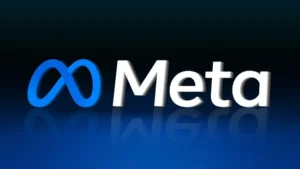In a groundbreaking move, Microsoft has introduced Phi-2, a 2.7 billion-parameter language model that redefines the capabilities of smaller AI models, outperforming counterparts up to 25 times its size. Phi-2 represents a significant leap forward in reasoning and language understanding, setting new benchmarks for performance among base language models with less than 13 billion parameters.
Building on the success of its predecessors, Phi-1 and Phi-1.5, Phi-2 introduces innovative advancements in model scaling and training data curation. Microsoft emphasizes two key elements contributing to Phi-2’s success: the quality of training data and groundbreaking scaling techniques.
Training Data Quality: Phi-2 leverages “textbook-quality” data, a meticulously curated blend of synthetic datasets designed to instill common sense reasoning and general knowledge. The training corpus is enriched with carefully selected web data, filtered based on educational value and content quality.
Innovative Scaling Techniques: Microsoft employs groundbreaking techniques to scale up Phi-2 from its predecessor, Phi-1.5. Knowledge transfer from the 1.3 billion-parameter model accelerates training convergence, resulting in a remarkable boost in benchmark scores.
Performance Evaluation: Phi-2 undergoes rigorous evaluation across various benchmarks, showcasing superiority in Big Bench Hard, commonsense reasoning, language understanding, math, and coding challenges. Surprisingly, Phi-2 outperforms larger models, including Mistral and Llama-2, and matches or surpasses Google’s recently-announced Gemini Nano 2.
Beyond benchmarks, Phi-2 proves its mettle in real-world scenarios. Tests involving common research prompts reveal Phi-2’s proficiency in solving physics problems and correcting student mistakes, demonstrating its versatility beyond standard evaluations.
Phi-2 in Detail:
- Transformer-based model with a next-word prediction objective.
- Trained on 1.4 trillion tokens from synthetic and web datasets.
- Training conducted on 96 A100 GPUs over 14 days, prioritizing safety.
- Surpasses open-source models in terms of toxicity and bias without using reinforcement learning or instructional fine-tuning.
Phi-2, released via the Microsoft Azure AI Studio’s model catalog, emerges as an ideal playground for researchers. Its compact size facilitates exploration in mechanistic interpretability, safety improvements, and fine-tuning experiments across diverse tasks.
Microsoft’s Phi-2 not only pushes the boundaries of what smaller base language models can achieve but also signifies a paradigm shift in AI capabilities, paving the way for enhanced safety, interpretability, and ethical development in language models.








